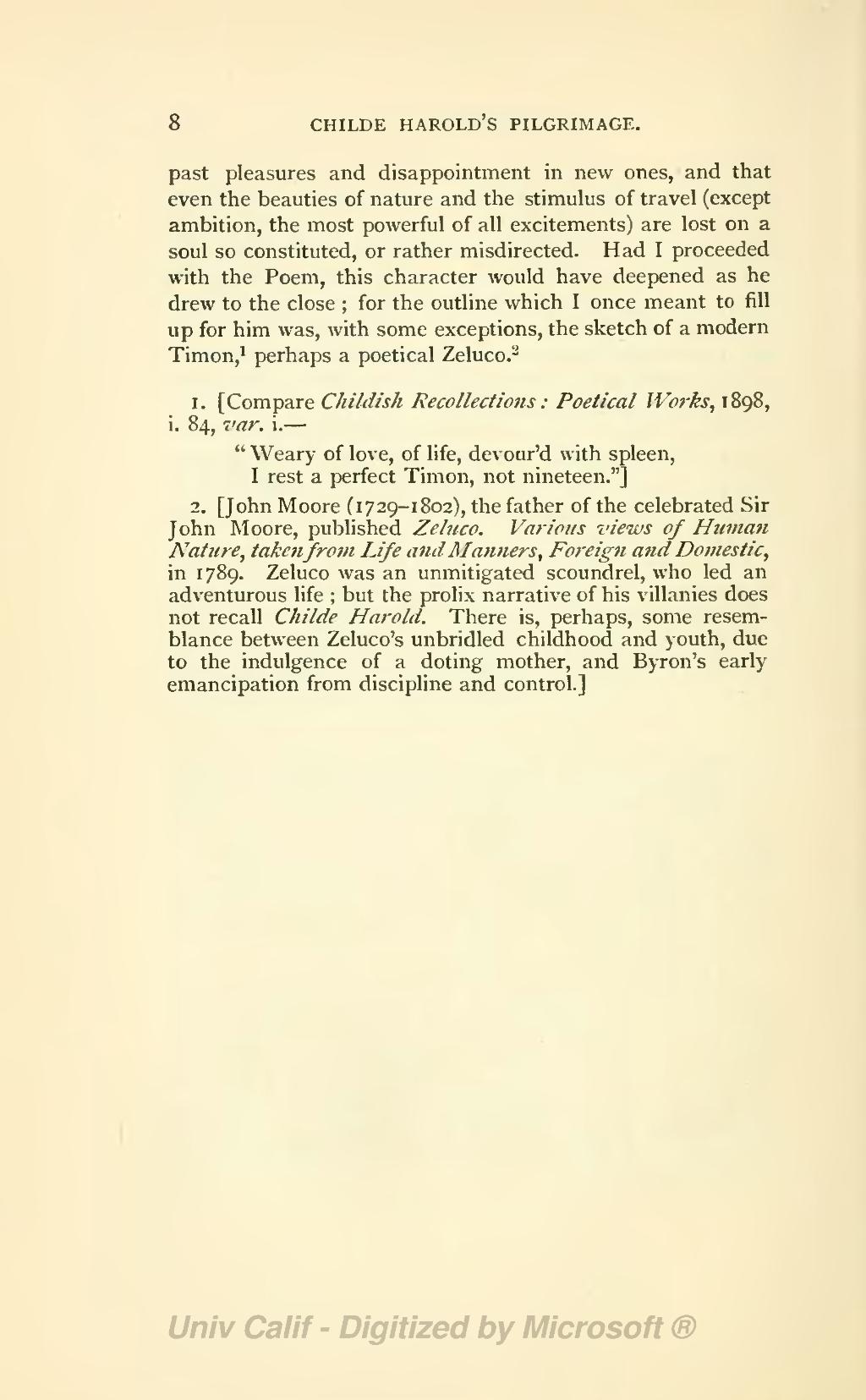8
CHILDE HAROLD’S PILGRIMAGE.
past pleasures and disappointment in new ones, and that even the beauties of nature and the stimulus of travel (except ambition, the most powerful of all excitements) are lost on a soul so constituted, or rather misdirected. Had I proceeded with the Poem, this character would have deepened as he drew to the close; for the outline which I once meant to fill up for him was, with some exceptions, the sketch of a modern Timon,[1] perhaps a poetical Zeluco.[2]
- ↑ [Compare Childish Recollections: Poetical Works, 1898, i. 84, var. i.—
"Weary of love, of life, devour'd with spleen,
I rest a perfect Timon, not nineteen."] - ↑ [John Moore (1729-1802), the father of the celebrated Sir John Moore, published Zeluco. Various views of Human Nature, taken from Life and Manners, Foreign and Domestic, in 1789. Zeluco was an unmitigated scoundrel, who led an adventurous life; but the prolix narrative of his villanies does not recall Childe Harold. There is, perhaps, some resemblance between Zeluco's unbridled childhood and youth, due to the indulgence of a doting mother, and Byron's early emancipation from discipline and control.]
